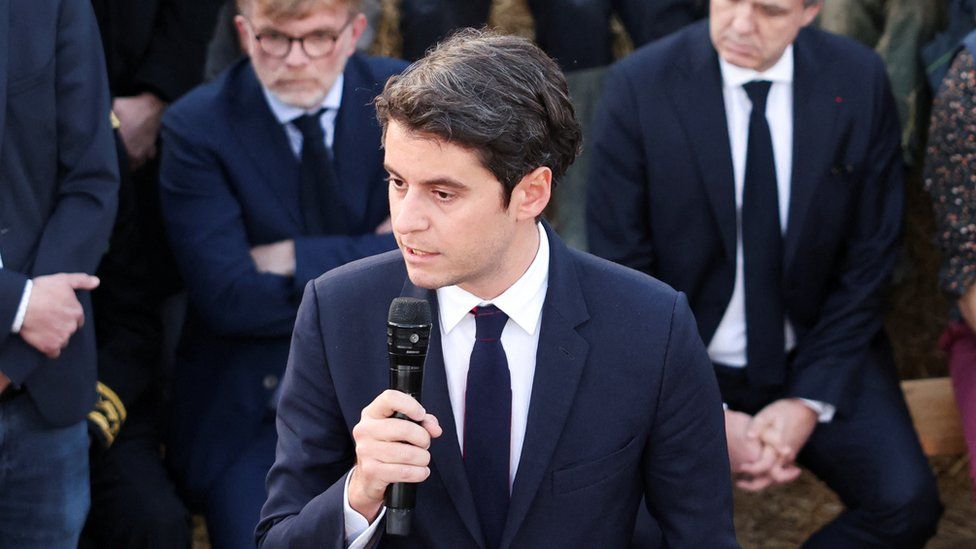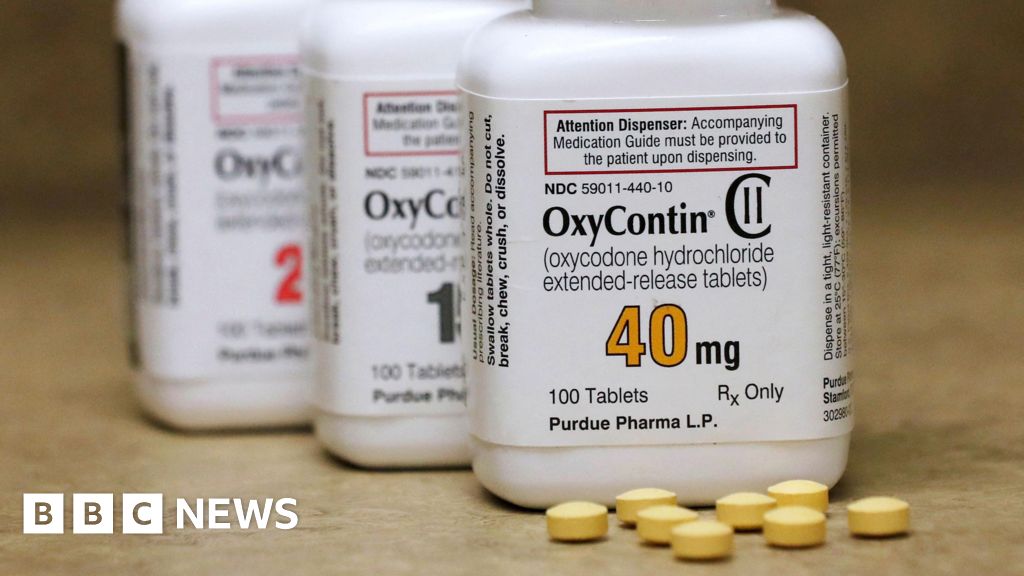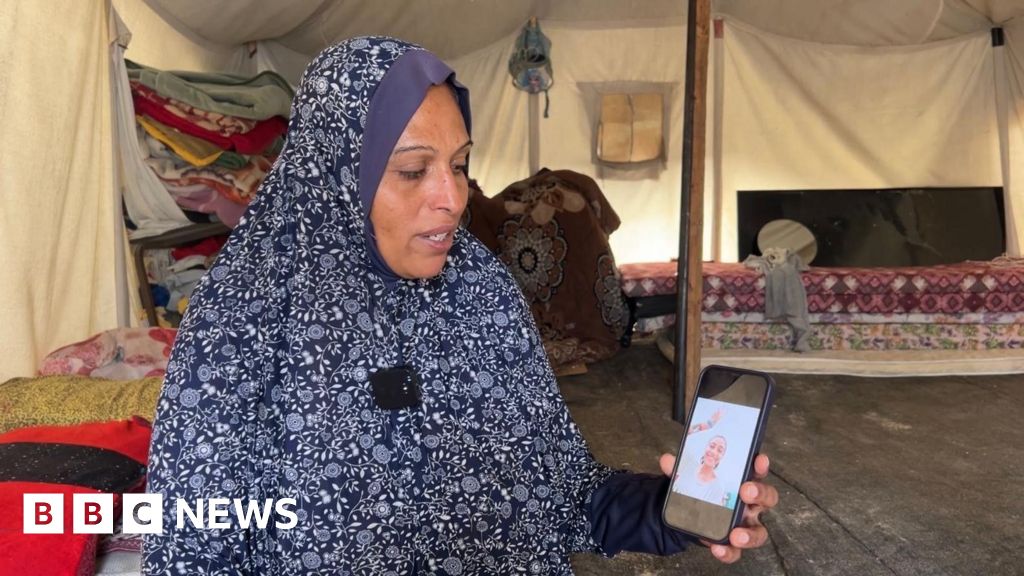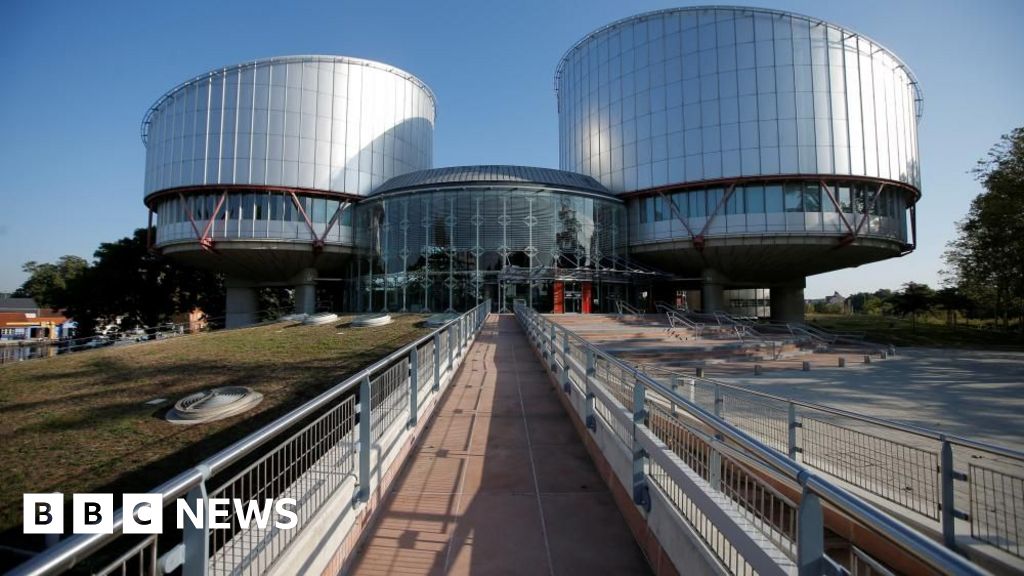ARTICLE AD BOX
 Image source, Reuters
Image source, Reuters
French Prime Minister Gabriel Attal is trying to negotiate an end to growing protests by farmers
By Sarah Fowler & Kathryn Armstrong
BBC News
France's new prime minister has announced key concessions to protesting farmers in a move the government hopes will end the growing demonstrations.
Among promises Gabriel Attal made on Friday were an end to rising fuel costs and the simplification of regulations.
It came hours after farmers took their protest about pay and low food prices to Paris - blocking major roads into and out of the capital.
"You wanted to send a message, and I've received it loud and clear," he said.
"We will put agriculture above everything else," he promised during a visit to a cattle farm in a mountain village near the Spanish border.
Mr Attal tried to address the farmer's grievances, which include the increasing cost of farm diesel, late payment of European Union (EU) subsidies, burgeoning bureaucracy and competition from imports.
He announced "10 immediate measures" to help, including the scrapping of the plan that would increase the cost of fuel.
Mr Attal said that an appeal would be made to the EU, asking for changes to the rules that mean farmers are required to keep some of their land fallow.
He added that France would remain opposed to signing an EU free-trade deal that farmers say will flood supermarkets with cheap produce.
His concessions have not gone down well with some.
"We are not satisfied with what was announced this evening," Alexandre Plateau, a representative of the National Federation of Farmers' Unions (FNSEA), the main farmers' union, told the Franceinfo radio network.
"A few requests have been met, but it is not enough."
Laurence Marandola, a spokesman for the Peasant Confederation union body, told the RTL radio network that Mr Attal's concessions were "very largely insufficient".
"We will continue to remain mobilised. It's not necessarily roadblocks, there will be different forms of mobilization, on the road, on roundabouts, in front of supermarkets," she said.
Image source, Getty Images
Image caption,Farmers blocked key roads in and out of Paris on Friday
Earlier on Friday, the A1 motorway linking Paris the northern city of Lille and Belgium was blocked by tractors and hay bales.
According to the FNSEA, some 55,000 people were mobilised nationwide.
Among the protesters was Christophe Beeuwsaert, a cereal and milk farmer in the Oise region north of Paris. He told the AFP news agency that the plan was to build a ring around the city and to keep moving closer in - increasing the pressure.
"When we hear our governments saying that they understand us, that they know what we're going through, it's just a load of rubbish," he said.
They (the politicians) sit in their leather seats, in their heated or air-conditioned offices... don't see the impact of all the decisions they make on us."
Protests are also continuing in the south of France, with the main road between the Lyon region and the Spanish border also blocked.
"We've already been demonstrating for a week and we still have no answers. We don't want any more words, we want acts," Sebastien, a young farmer, told AFP news agency at a blockade outside Toulouse's Blagnac airport.
The farmers' protests are the first major test for Mr Attal, who has only been in power since the start of the month.
They began in the south west of France last week, with several key motorways there cut off entirely by farmers who have installed sleeping quarters in the middle of the highways.
On Tuesday, a farmer in her 30s and her 12-year-old daughter were killed after a car accidentally crashed into a roadblock just south of Toulouse. Agriculture Minister Marc Fesneau said at the time it was a "tragedy for all of us".
France's protests come at the same time as similar demonstrations by other European countries including Germany and Belgium.

 11 months ago
19
11 months ago
19








 English (US) ·
English (US) ·